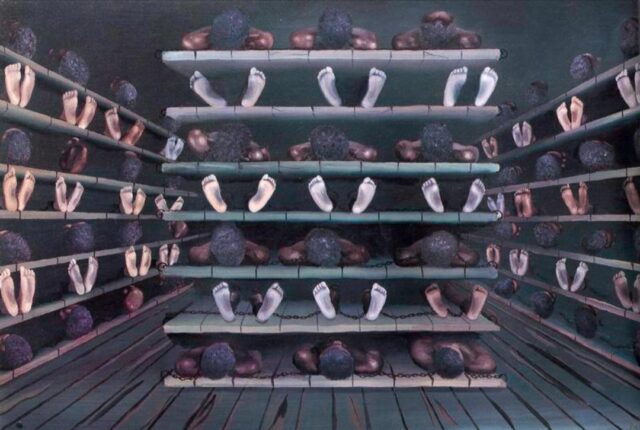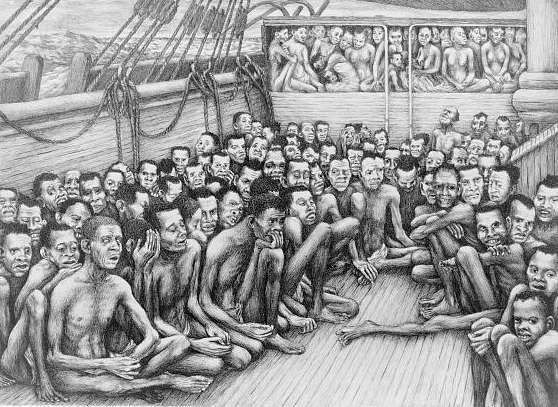Started as a way to get cheap labour to work on the plantations of some European farmers, the Atlantic Slave Trade is one of the darkest times in the history of West Africa.
This era had a profound effect on not just the African continent but the world at large. Those who were involved in the slave trade and those who were traded still carry that stigma and it is even felt by their descendants to this very day.
It all started in the late 1400, when European farmers found that some of the plants they were growing on their plantations required a large amount of work, something their workers couldn’t provide. So they looked to Africa, particularly West Africa, whom they had already started trading smaller things with, such as agricultural produce.
The African rulers saw this as an opportunity to get rid of the prisoners they had arrested as conquests of war and willingly handed them over in bulk to be slaves in another land. It seemed like good business at first until the Europeans’ demand began to scale.
The African rulers started setting slavery as a punishment, and some of the people began to betray their own brothers and have them dragged from their homes at night. In some instances, Africans were compelled to sell members of their own communities to European slave traders in exchange for weapons, which the Africans used to protect themselves against potential attacks from rival groups or tribes seeking to capture people as slaves.
This painful reality reflects the complex dynamics and harsh realities of the transatlantic slave trade, where African societies faced immense pressures and vulnerabilities that led to internal conflicts and betrayals for survival in the face of European colonization and exploitation.

Indeed, the enslaved people who were forcibly taken from Africa during the transatlantic slave trade were subjected to brutal maltreatment. They experienced horrific conditions, including physical abuse, forced labour, sexual exploitation, inadequate food and shelter, and denial of basic human rights.
Many slaves faced extreme violence, torture, and dehumanizing treatment at the hands of slave owners, resulting in immeasurable suffering and long-lasting trauma for generations. The inhumane treatment of enslaved people stands as a dark chapter in human history, and its effects continue to be felt in the present day.
Below the decks of the slave ships, African captives were often crammed into tight and unsanitary spaces, where many contracted diseases and lost their lives. In some cases, enslaved individuals were callously thrown overboard if they were deemed sick or unprofitable, further adding to the horrors and inhumane treatment of the transatlantic slave trade. Some starved or poisoned themselves to death, thinking it better to die on the ship than to go to the white man’s land and experience a different kind of suffering.
African societies were severely impacted by the devastating effects of the transatlantic slave trade, which came to an end in the 1800s. The slave trade caused immense suffering, loss of lives, and disruption of African societies, leaving lasting scars on their social, economic, and cultural fabric. They had lost a large population of their men and were weak as a people. This left them open and very susceptible to colonisation, leading to the next major era in West Africa.
Despite the horrific legacy of the slave trade, West African societies have taken important steps to confront and overcome it, erecting large monuments and memorials to commemorate the victims of the trade and to honour the resilience of those who survived it. Also, these societies have made efforts to promote economic growth and development, which can help to create opportunities and improve the quality of life for all Africans.

The era of the slave trade was a painful one in the history of Africa but the continent is recovering from its effects and coming back stronger every day. Africa has taken important steps to acknowledge and confront this legacy, and its future looks brighter than ever.
As we reflect on this period of history, we all must remember the victims of the trade and work towards a more just and equitable world for all.
Of a certainty, Africa will rise again.














